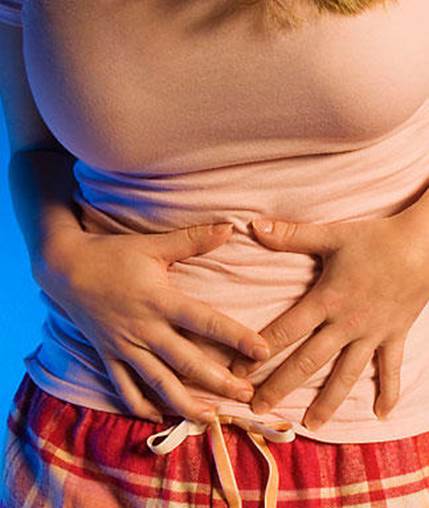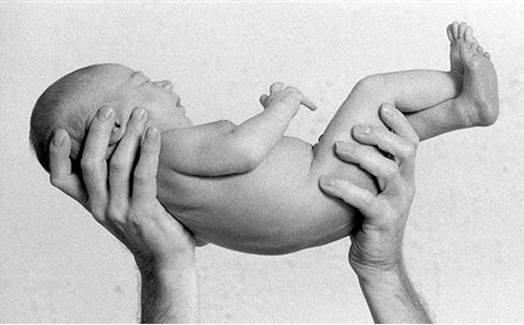2. Your blood group
40% of us have no idea which blood group we
are but in recent years it’s become clear it has a major influence on our
health. The best way to find out your type is to give blood; go to blood.co.uk
to find out how.
YOU’RE: GROUP AB OR B
Your risk: Ovarian cancer
A US study of nearly 50,000 women found
that those with blood group AB or B (that’s 14% of the UK population) had a
significantly increased risk of ovarian cancer.

Ovarian
Cancer pain
Fight back:
·
Know the symptoms. Frighteningly, almost a third of ovarian cancer diagnoses are made in A&E,
probably because just 3% of us recognize the symptoms. They are: persistent
stomach pain, bloating, difficulty eating and feeling full quickly, needing the
toilet more often, change in bowel habits, unexplained weight loss and extreme
tiredness. ‘It shares symptoms with IBS but if anyone in your family has had
ovarian cancer don’t be fobbed off with that diagnosis’, says Marilyn. ‘See a Gynaecologist
for a scan.’
·
Exercise more.
Sitting down for hours increases oestrogen levels in your body, an excess of
which is linked to ovarian cancer, so having a ‘muffin top’ ups your chances.
‘Your waist to hip ratio shouldn’t be more than 0.8’, says Marilyn. Check yours
using the calculator at bbc.co.uk/health/tools.
·
Know your history. If two women in your family have had ovarian cancer, ask to check
if you carry the BRCAI or BRCA2 gene, which makes you about 20 times more
likely to develop it.
·
Change your contraception. ‘Taking the Pill cuts your chances of developing ovarian cancer by
nearly half because it stops you ovulating’, explains Marilyn.
YOU’RE: GROUP O
Your risk: Fertility issues
Researches recently looked at the blood
groups of women undergoing IVF and found that those with blood type O (44% of
Brits) had the highest levels of the follicle stimulating hormone (FSH), which
is an indicator that the number of eggs in your ovarian reserve is diminishing.

Women
with blood group O have double the risk of infertility
Fight back:
‘Higher FSH levels means a woman may
produce fewer eggs, so the key is to ensure that the eggs she does produce are
better quality’, says Zita West, fertility expert, midwife and author of Zita
West’s Guide to Fertility and Assisted Conception (Vermillion, $24). ‘The
best way to do that is to prepare your body for at least three months before
trying for a baby or starting IVF. Both you and your partner should take a good
multivitamin to limit free radical damage and produce healthy eggs and sperm.’
(Try Fertility Support For Women, $44.5 for 60 tablets, natural
healthypractice.com.) ‘Omega-3 fatty acids are crucial for cell health, too, as
is vitamin D. Also, exclude obvious toxins like alcohol and tobacco and cut
down on caffeine and excessive exercise.’
3. Where you live
Where you live doesn’t just have an impact
on your accent, job opportunities and restaurant options it’s a major influence
on your health, too.
YOU LIVE: IN THE CITY
Your risk is: Depression
Recent German research found that city
brains are over-stimulated, particularly the areas responsible for sending
danger and controlling emotion, causing a 39% higher risk of mental health
problems like depression, and 21% greater chance of suffering with anxiety.

Where
you live doesn’t just have an impact on your accent, job opportunities and
restaurant options it’s a major influence on your health, too
Fight back:
·
Cut caffeine.
‘Although a daily latte may feel like a useful stimulant, it doesn’t help you
balance energy and moods,’ says Marilyn. ‘You’re just making the fact that
you’re exhausted. Try to eat little and often, as missing meals causes your
body to release more stress hormones. Avoid sacrificing sleep too.’
·
Take stress beating supps. ‘B vitamins are known for their ability to combat stress, while
magnesium is nature’s tranquiliser, so great for times when stress avoidance is
nigh-on impossible. But you should also check your vitamin D levels’, says
Marilyn. ‘Pollution and smog could inhibit sunlight meaning you get less
exposure to vitamin D, which has been linked to depression.’
YOU LIVE: IN THE COUNTRY
Your risk is: Dementia
According to recent research, being born
and bred in the country can more than double your chances of developing Alzheimer’s
in later life. ‘We don’t know exactly why there’s a link,’ says Jess Smith,
neuroscientist and researcher for the Alzheimer’s Society. ‘But it could be
isolation; which we know in old age makes you more predisposed to dementia.’
Fight back:
‘Anything that helps blood flow to the
brain reduces your risk of dementia because it means cells are provided with
what they need’, says Jess. And the latest research suggests that your
lifestyle in mid-life (40-plus) has the biggest impact, so making tweaks now means
avoiding the need to make major chances later on.
·
Eat Mediterrancan.
‘The Med diet is high in nuts, oily fish and antioxidant-packed fruit and
vegetables, low in saturated fats, and provides the nutrients that protect your
overall health and improve blood flow to the brain’, says Jess.
·
Challenge your grey matter. A study found that varying your brain activity can reduce your
risk of Alzheimer’s. that doesn’t mean doing Sudoku puzzle 24/7, it could be as
simple as changing your route to work, so you’re not always operating on
autopilot mode.